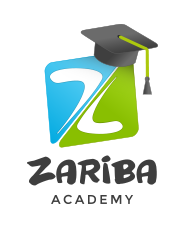Introduction to programming with games
In this course we will familiarize ourselves with the basics of programming – primitive data types, arrays, conditional statements, loops and much more.
We will make a couple of basic games written in C# (C# Console Application) to understand the basic concepts of game development.
EXERCISES
Take a look at the lectures for this course.
1. Introduction to Zariba Game Academy
2. Introduction to From Noob to Game Developer
3. Introduction to Programming - C# and Visual Studio
4. Primitive Data Types
5. Console Input/Output
6. Operators and Expressions
In this lecture we will describe the different operators in C# and how to use them in expressions.
We will consider arithmentic, logical, binary, comparison, assignment, concatenation, type conversion and other operators. Those will be mentioned with their order of execution, proper use with many examples.
7. Conditional Statements
8. Loops
9. Workshop 1: Simple Speed Testing
In this workshop we will learn how to make a simple speed testing for your programmes. We will run some basic computations to see which one is faster. The results could be shocking!


